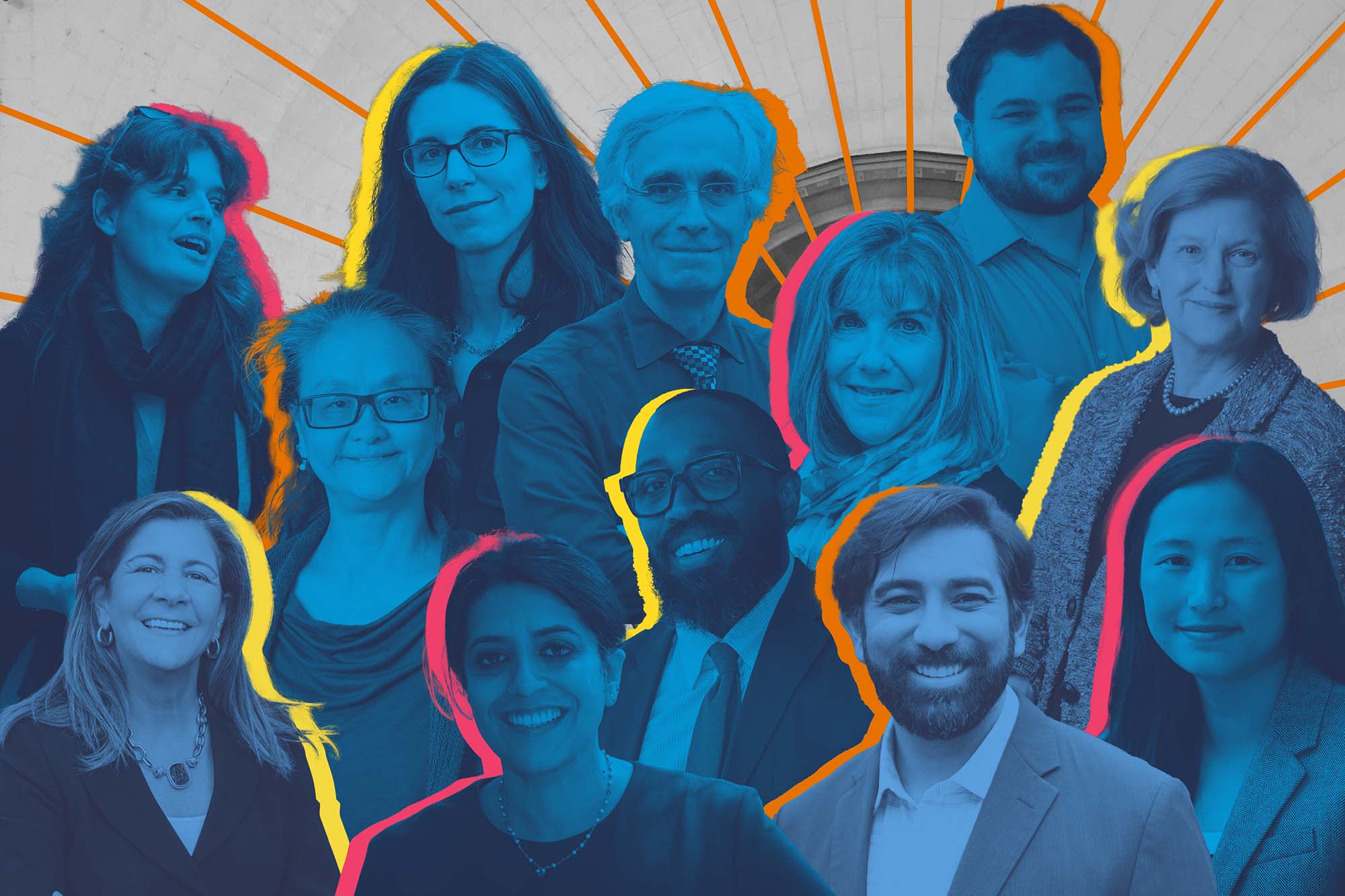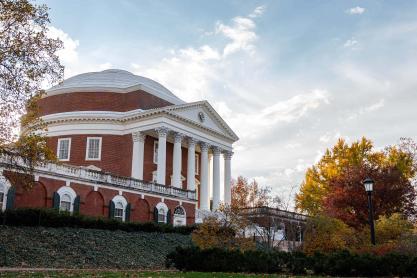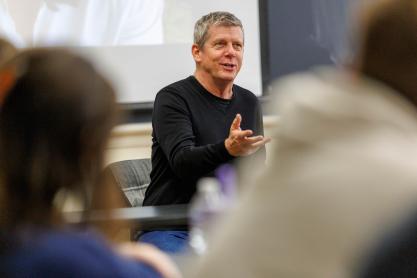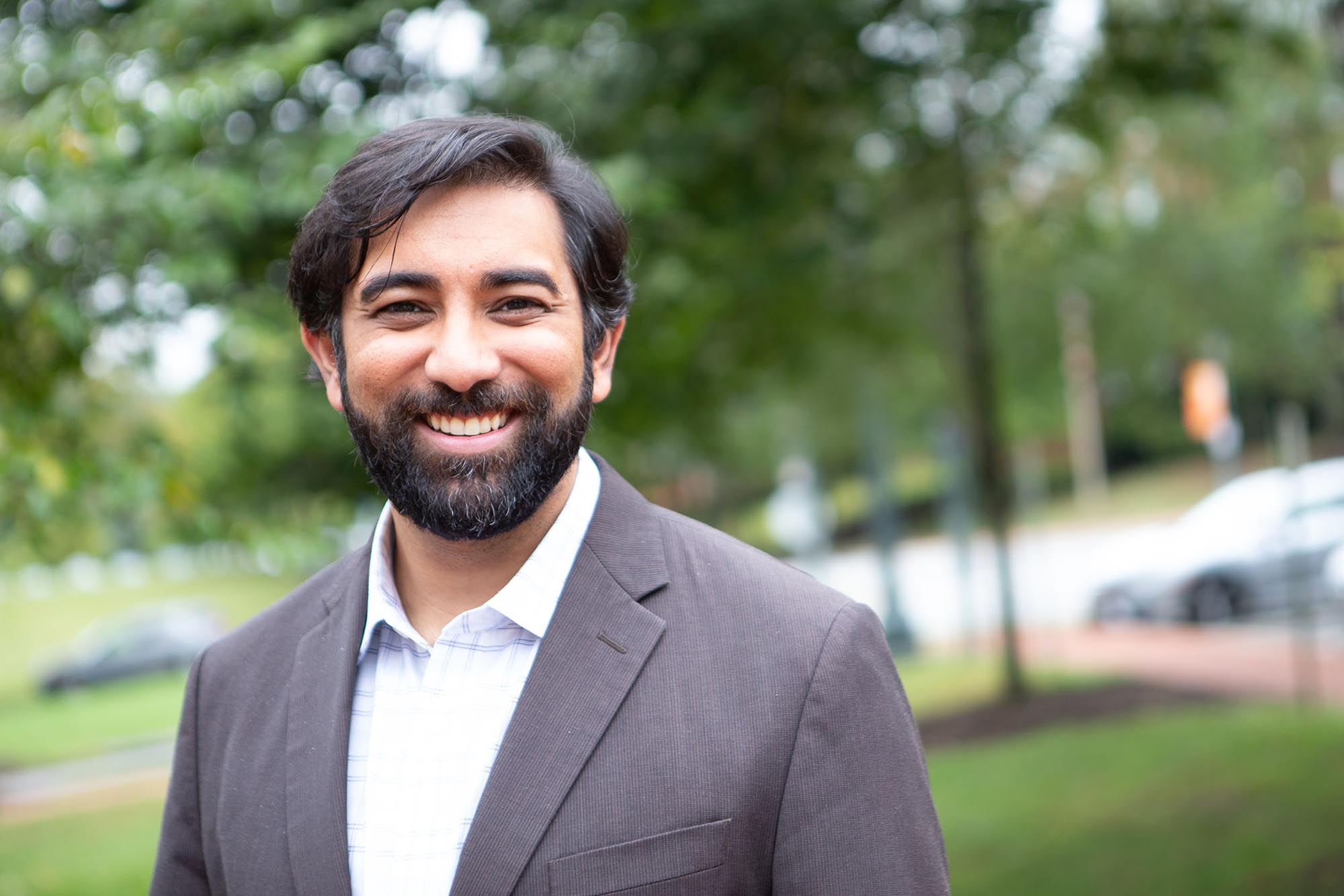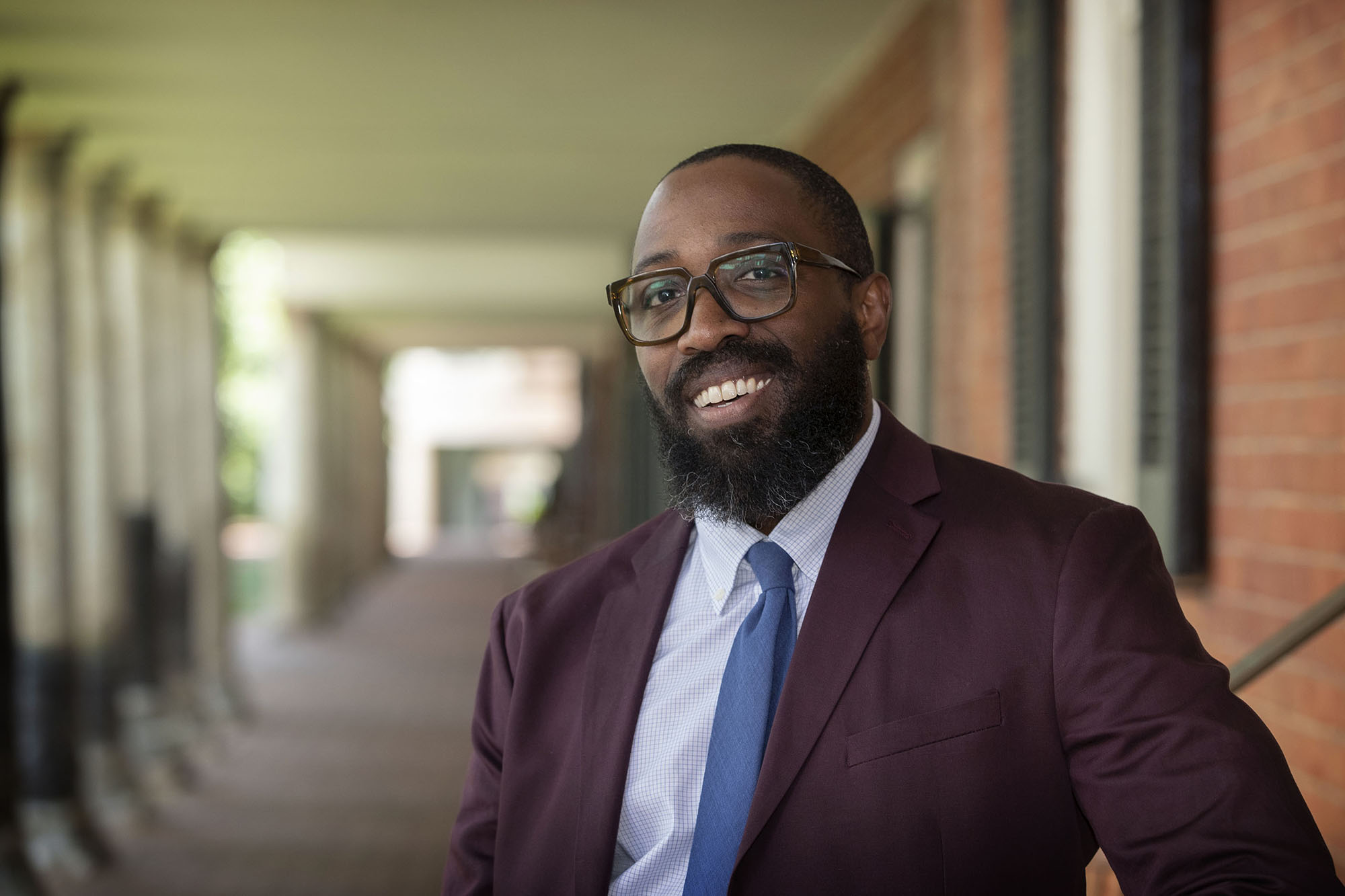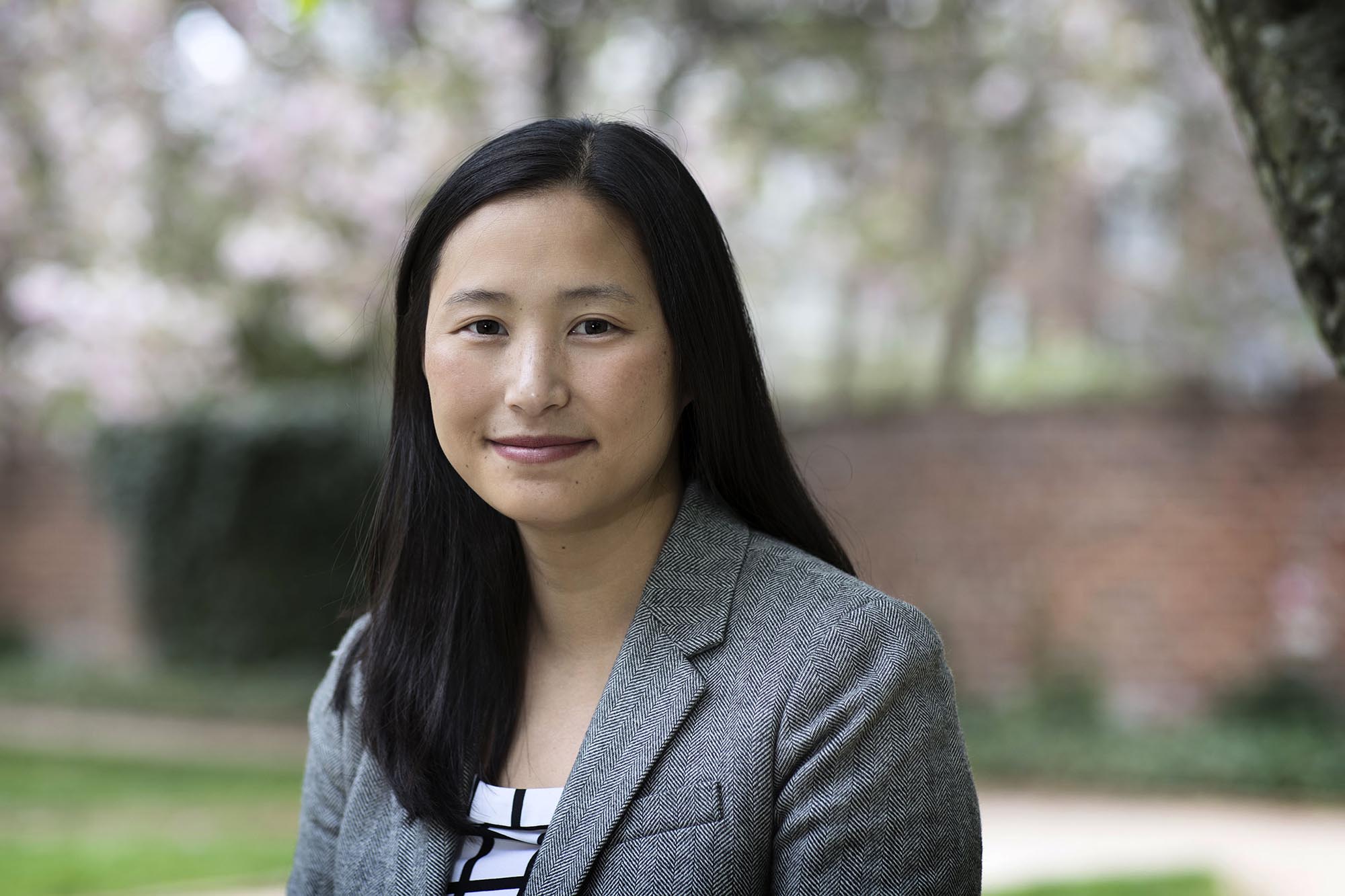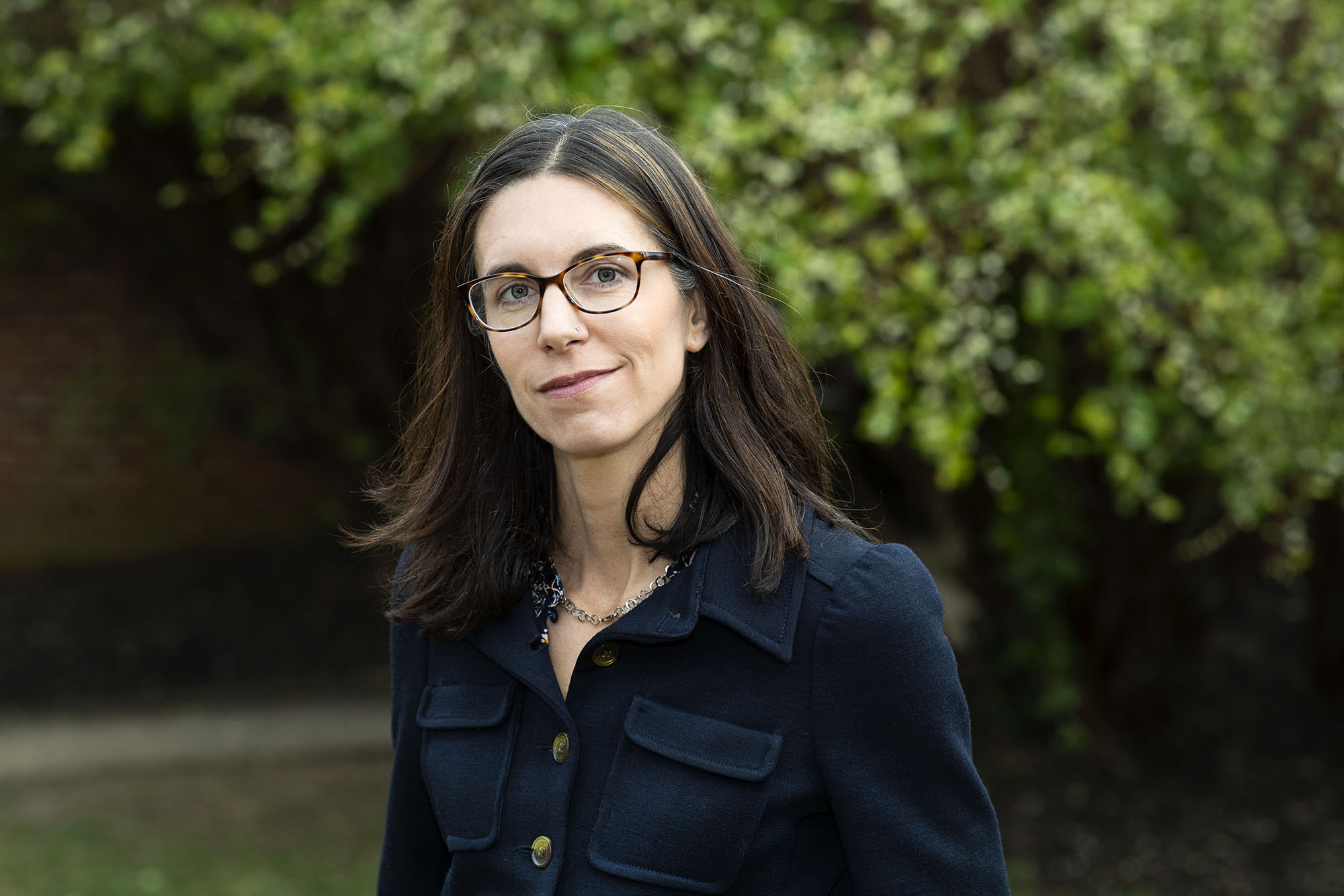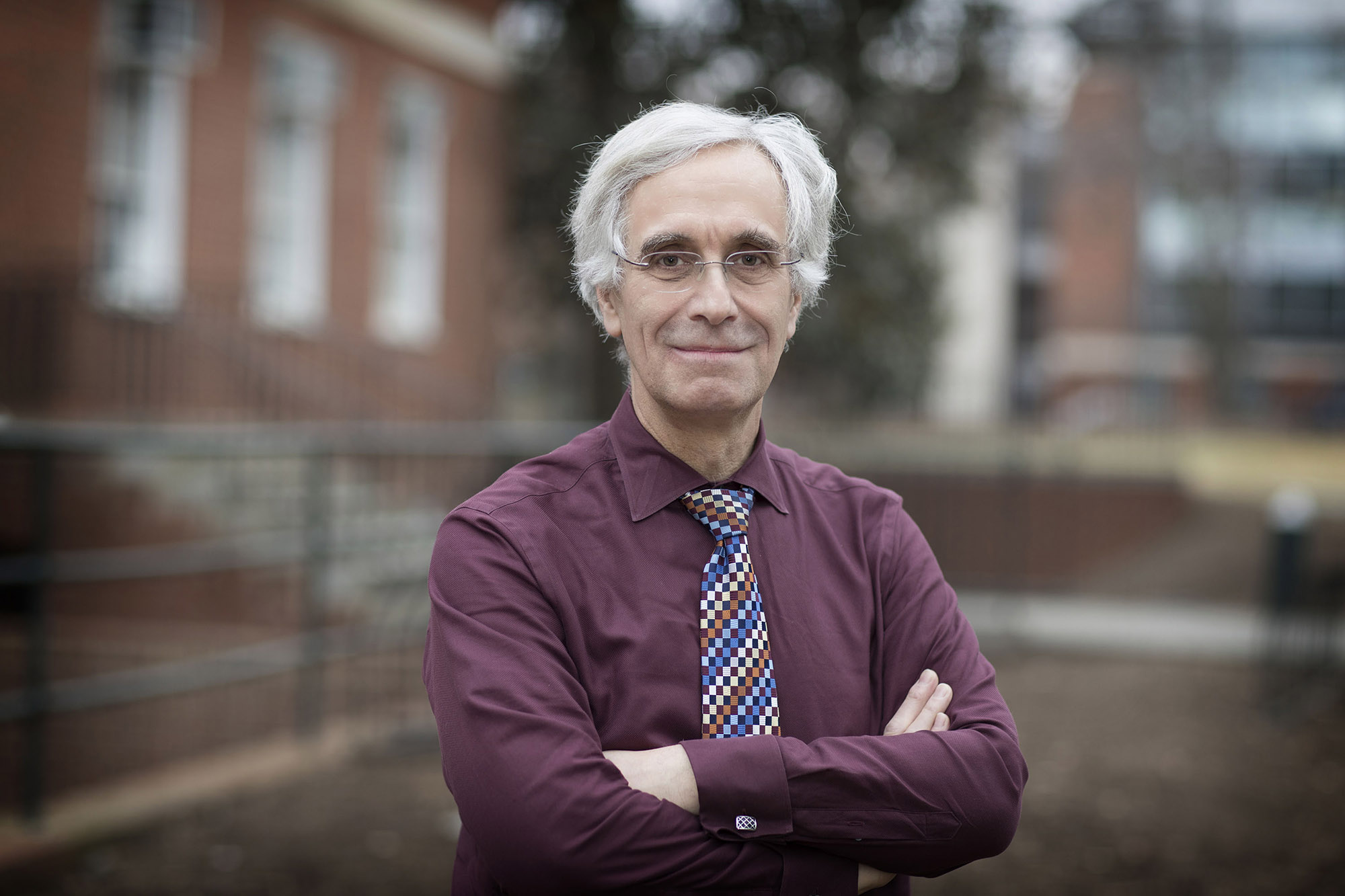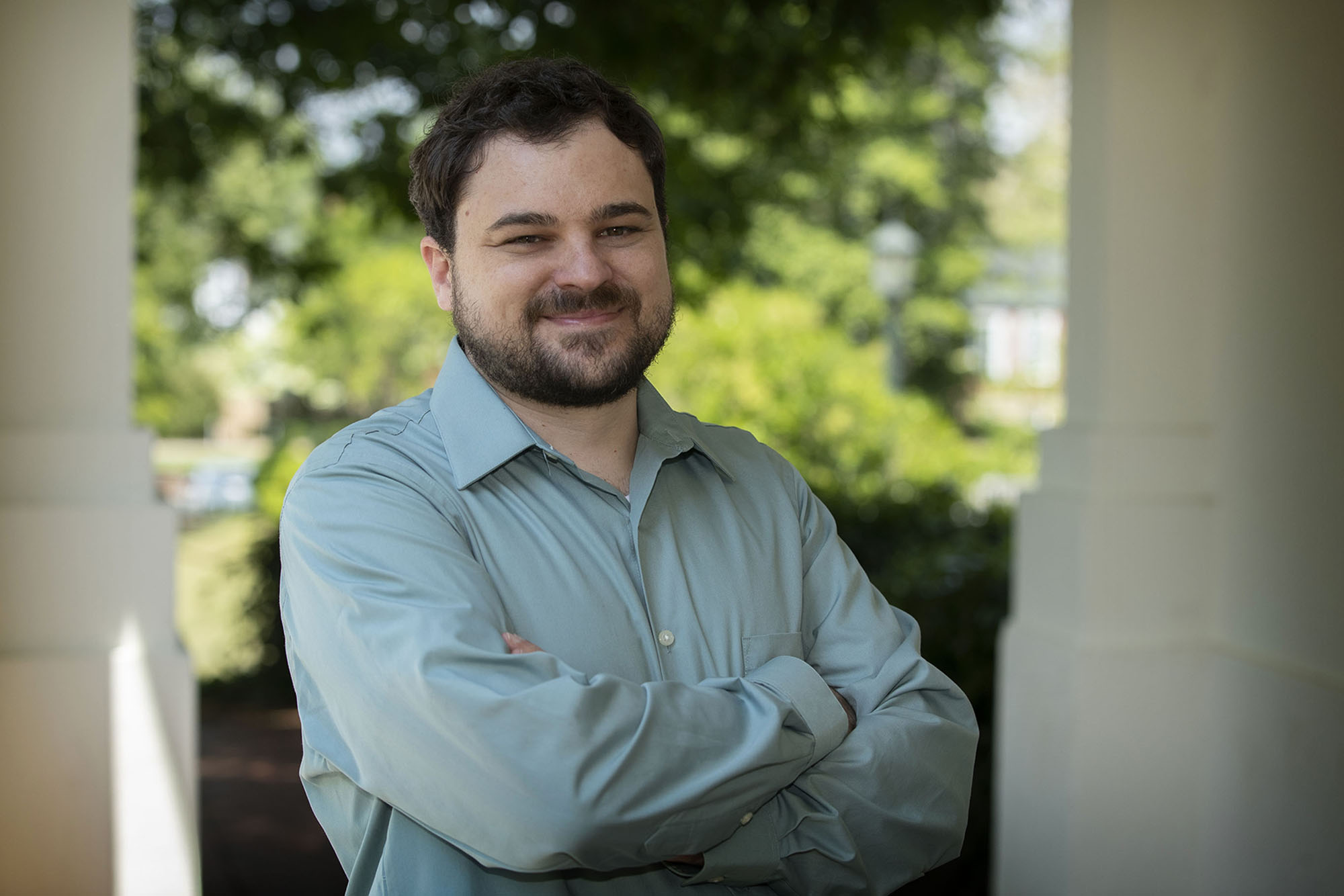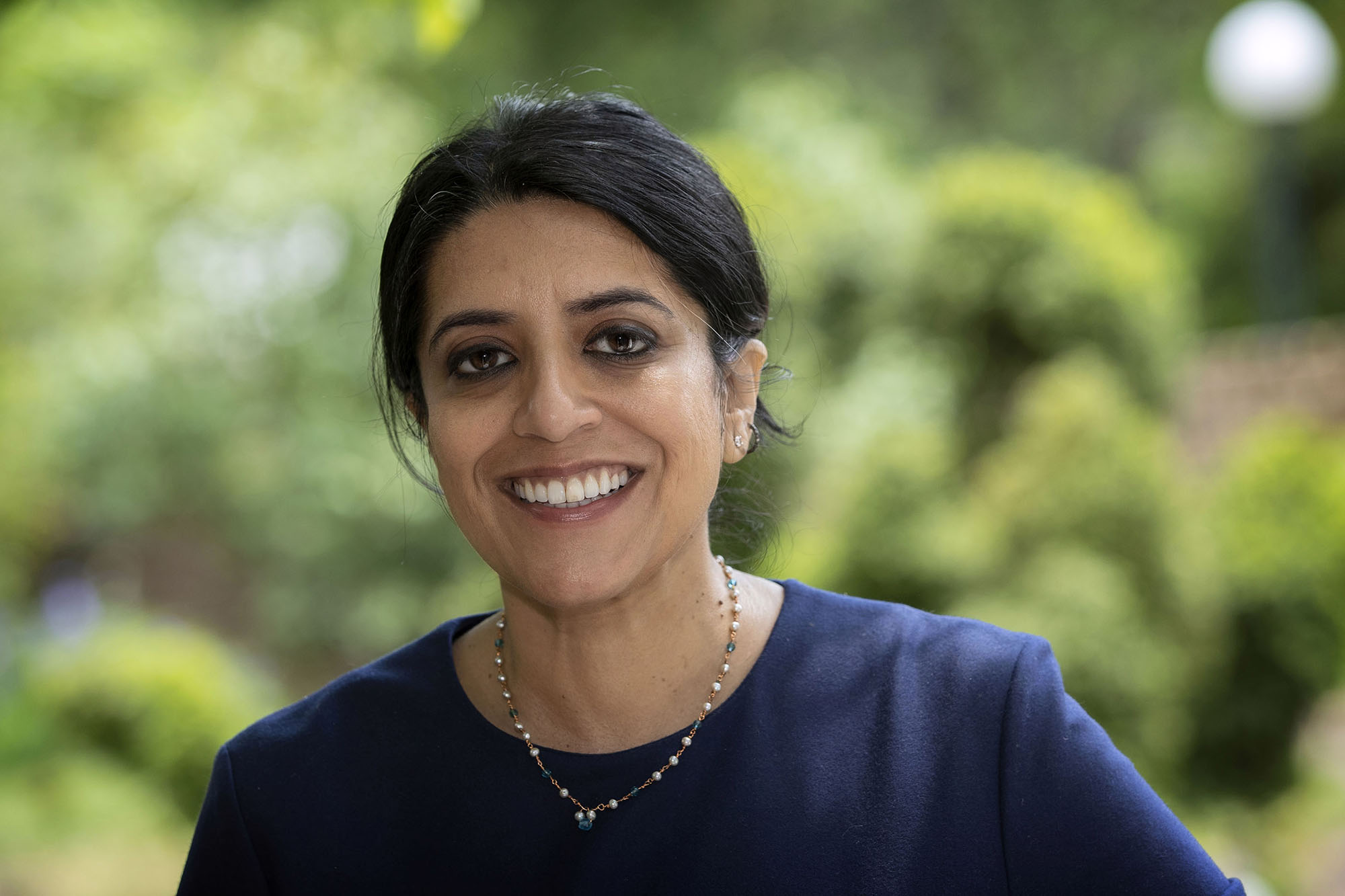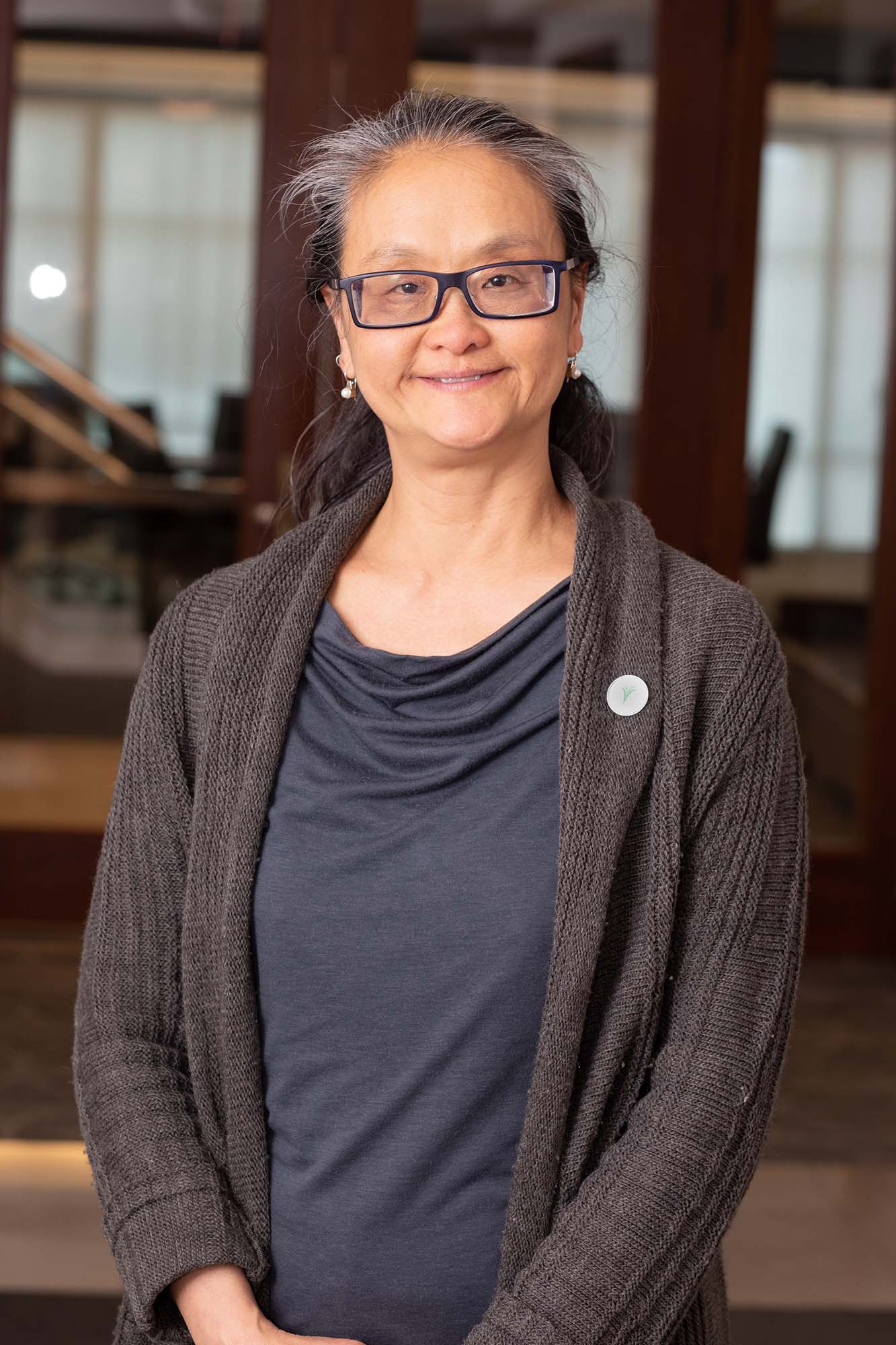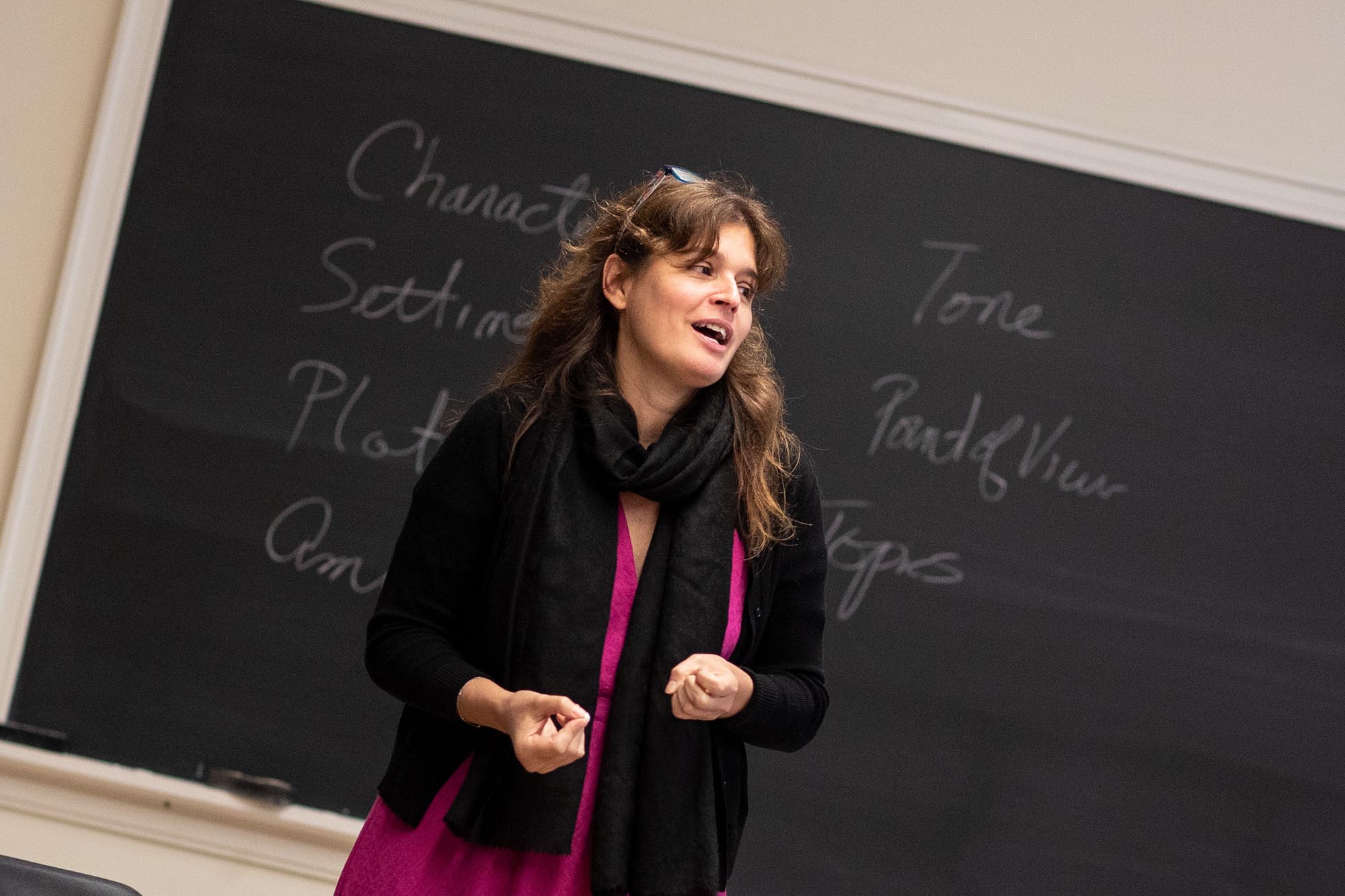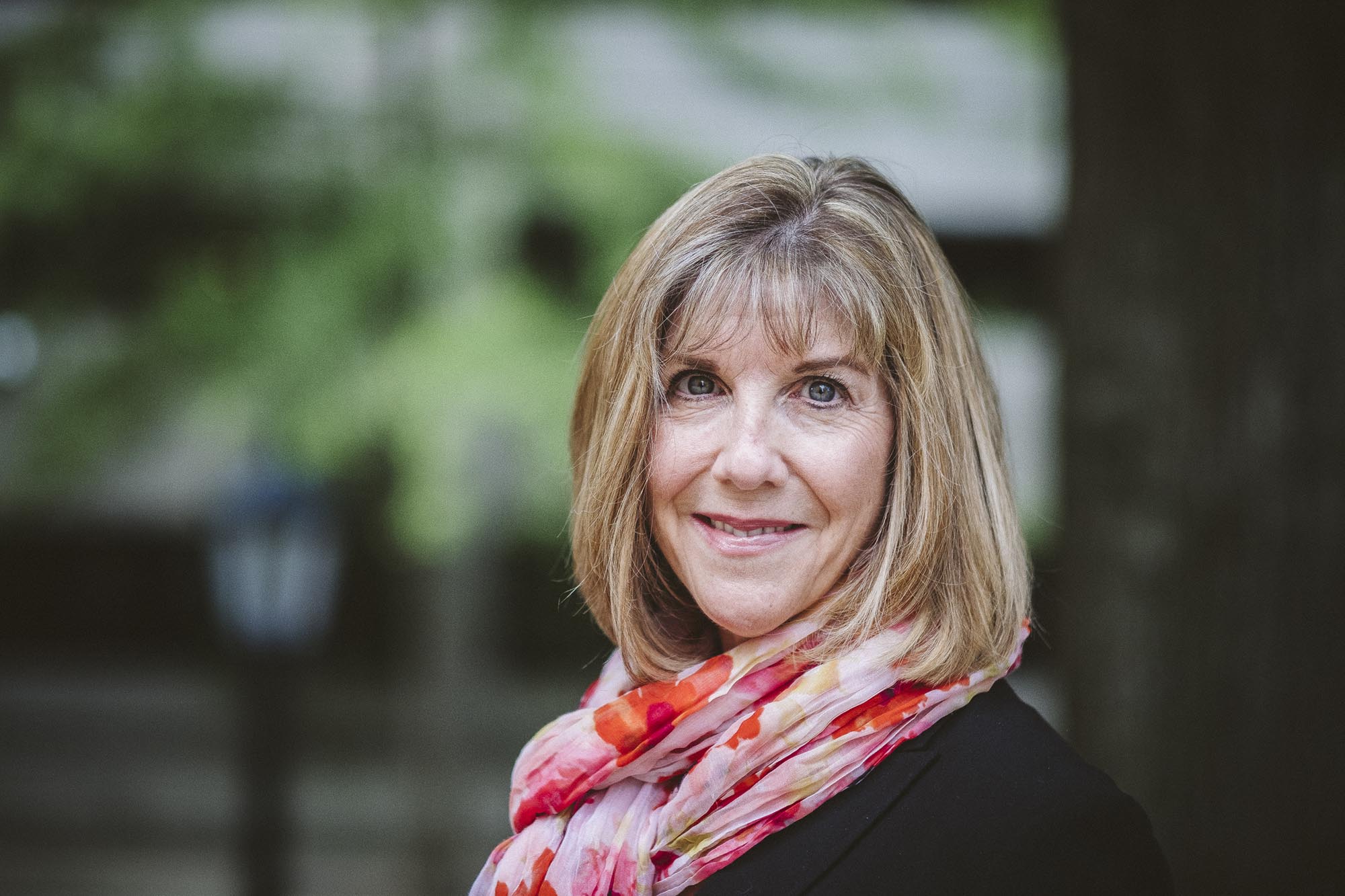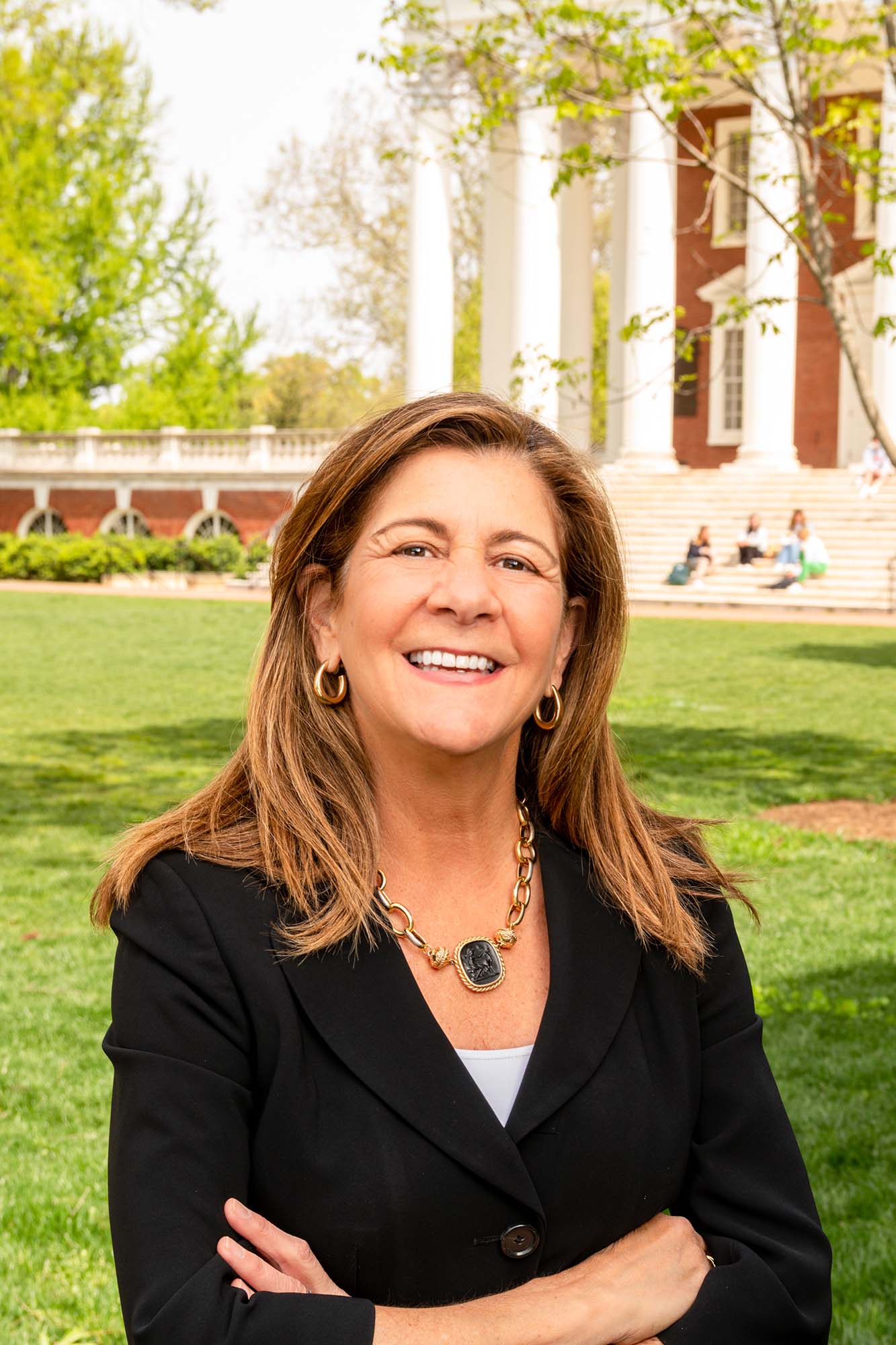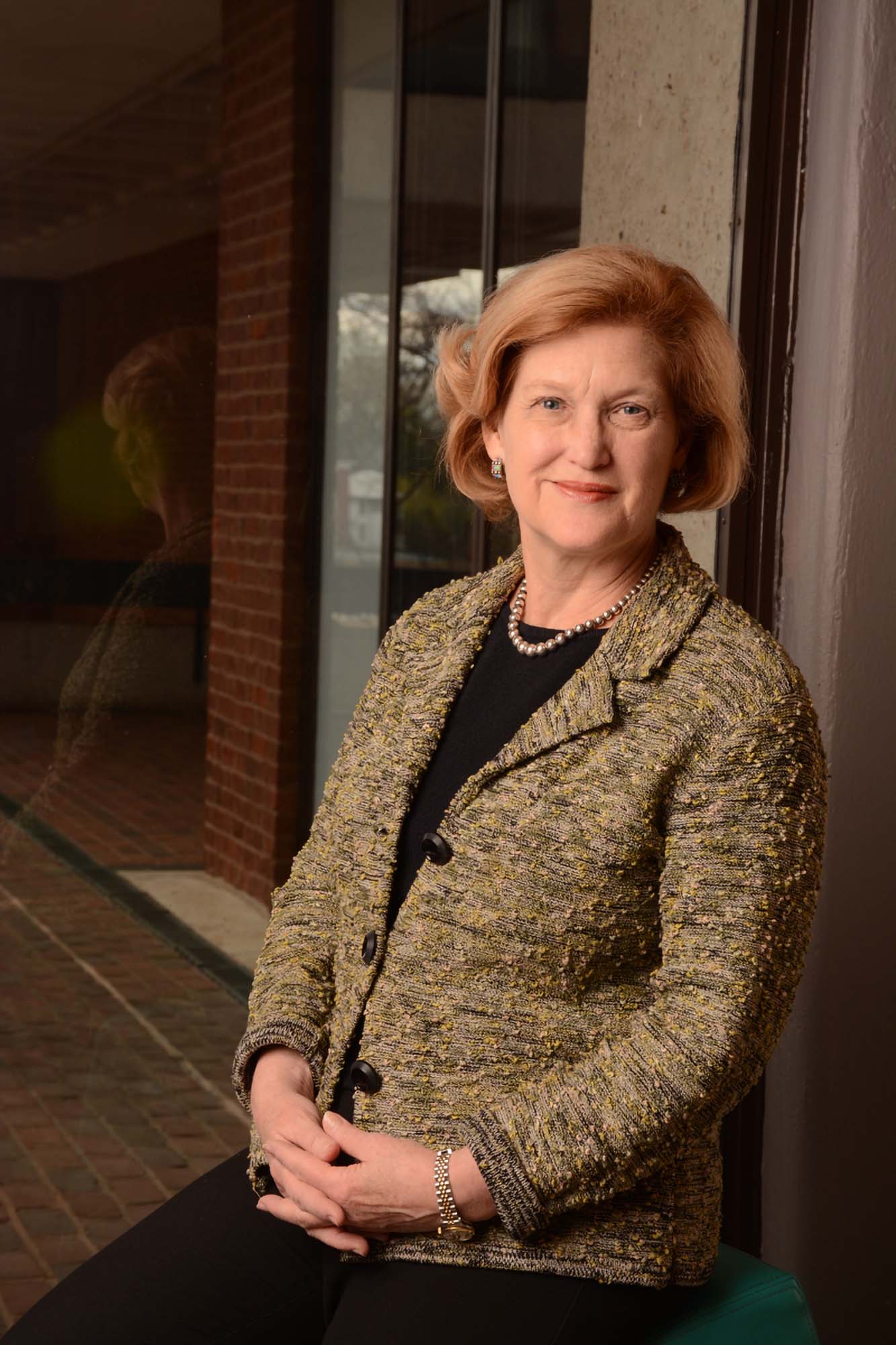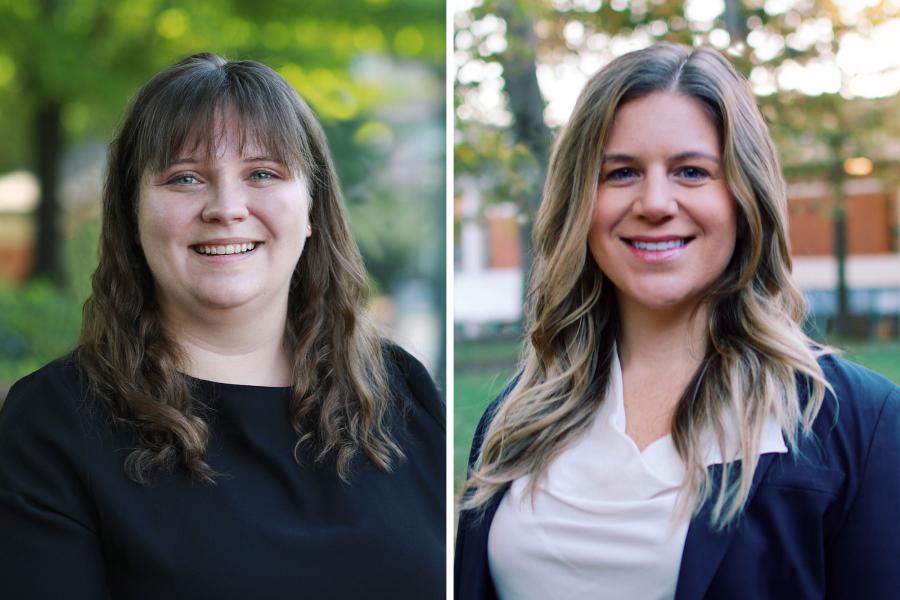They displayed “teaching and pedagogical wizardry,” as Darden professor Jim Detert called it, in support of his colleague Bobby Parmar. Many of the supporting letters from colleagues, students and recent alumni marveled at these professors’ skills in keeping students involved in virtual classes and relating their subject material to what was going on in daily life.
This past year, they “kicked it up a notch” in expressing compassion and positivity, not only to keep students engaged, but also to build trust and be there as everyone struggled with the difficult times. Some of their recent activities before the pandemic included real-world projects working with different community groups, and several recipients came up with innovations that continued to make an impact on students’ lives.
Here are some of the practices that make these professors stand out and garner their students’ insistence that these award-winning teachers are the best professors they have had at the University of Virginia.
Alumni Association Distinguished Professor Award
• Bidhan “Bobby” Parmar, Shannon Smith Emerging Scholar in Business, associate professor of business administration, Darden School of Business
How Parmar gets students to enact concepts, teaching “Business Ethics” or his “Collaboration Lab”:
“Over my 13 years of being an educator at the University of Virginia, I am continually amazed by how much learning happens when the instructor ‘sets up the situation’ so that students can explore the material. Setting up the situation can mean posing a puzzling question, giving them a difficult situation to discuss, and helping them to feel something they did not expect by putting them into realistic simulations. The surprise they feel when they see themselves acting in a way they did not predict catalyzes learning. When students do something where they have to venture a part of themselves, they become energized to figure out how they did, why they behaved that way, and what they can do better. The situations I try to create in my classes are personal, social, and multi-sensory, all of which provide opportunities for creating richer and stronger memories and increase the odds that they can remember what they learned when they need it the most.”
Renowned colleague R. Edward Freeman, a University Professor and the Elis and Signe Olsson Professor of Business Administration, heaped praise upon Parmar. “He is one of the very best MBA teachers I have ever seen, and I have had the opportunity to observe the very best from all over the world during my 40-plus-year career,” Freeman wrote in support of his nomination.
“He is always available for the students outside of class, and I can testify, from listening to students, that during this pandemic he has gone way beyond the norm to be available for the students, both individually and as a group, so that they can get as much of the ‘Darden experience’ as possible under the circumstances.”
Alumni Board of Trustees Teaching Award
• Elgin Cleckley, assistant professor of architecture and design thinking, School of Architecture, with appointments in the schools of Education and Human Development and of Nursing
Cleckley teaches courses including “Foundations of Design Thinking” and “Introduction to Designing and Thinking,” as well as design research studios. With the inability to take field trips in fall 2020, his design research studio for undergraduate and graduate students in the architecture and landscape architecture departments focused on the history and experiences of the Great Migration of African Americans, material that inspired students’ proposed installation in Grand Central Station’s Vanderbilt Hall in New York City.
“The outpouring of testimonials I received from students in this class was astounding,” wrote Sheila Crane, associate professor and chair of the Architectural History Department. “One of these … offered a concise formulation of sentiments repeated by nearly every student in the course: ‘What really struck me from the first day of class was the way Elgin was thinking about how to build a learning community in our remote-learning condition. He made spaces for us to talk with a few of our peers on a more intimate level during studio so we could build studio friendships without staring back at a screen full of 12 faces in awkward silence. He thought of ways we could present our work as a part of a collective presentation during reviews, rather than treating our work in isolation. In this and so many other ways, Elgin took on the challenge of the dispiriting nature of learning in the pandemic, and found a way to make class fun, collaborative, and with a sense of belonging that really fueled the design work. To me this shows a great deal of empathy, care and dedication to his students, which shows why he is one of the best that UVA has to offer.’”
“To me, it’s the best job in the world,” Cleckley wrote in his reflective teaching statement. “Seeing students overcome the complexities of design and visualization [and grow] into confidence in their ideas and the ability to express them is a joy. It fuels me to see them succeed. It is a life project I’ve been developing since my time as a student at UVA, evolving into a self– formulated design practice, initiative, and pedagogy titled _mpathic (for “empathic”) design.
All-University Faculty Teaching Awards
• Gabrielle Adams, assistant professor of public policy and psychology, Frank Batten School of Leadership and Public Policy
Gabrielle Adams’ students said they were amazed at how she made 2½ hours on Zoom go by so quickly. She teaches courses such as “Foundations of Behavioral Science,” which prompted one student to write:
“It’s a rare and powerful experience when one professor can make you rethink how you interact with the world. Professor Adams was so influential because her teachings made me analyze and change my own behavior, and they formed the bedrock of my academic learning at UVA. Her emphases on heuristics [ways of making decisions more quickly using mental shortcuts; these shortcuts can take the form of stereotypes and biases or introduce other errors] and situationism led me to understand that we’re much less in control of our behavior than we’d like to think, especially when we’re unaware of the social forces which shape our perspectives. Her excellent teaching abilities have impacted my perspective in my other classes, for I understand political, sociological and historical systems as influencing our actions, but which also form what we consider actionable.”
• Lucy Bassett, associate professor of practice and public policy, Batten School
Three years ago, Bassett made “a life-changing career shift from policy professional to professor,” she wrote in her reflective teaching statement.
She isn’t afraid to teach difficult courses, according to Batten Dean Ian Solomon, who nominated her for this award. She taught an online course this spring, an undergraduate capstone course about the crisis on the U.S./Mexico border.
“Students in that class told me that it was a life-changing course,” Solomon wrote, “not only because of the timeliness of the topic, but also because of the passion and perspective she brought to it. It was a difficult class to teach because the situation was evolving in real time, but Lucy was not deterred from the challenge because she knew it would be an invaluable experience for her students.”
One of the students who took “Children in Crisis at the U.S.-Mexico Border,” wrote, “I skimmed the description to learn more about the short course. Having spent months living and volunteering along the U.S./Mexico border before and during my time at UVA, I wondered how a university course could begin to convey the mosaic of human suffering, emotional distress, humanitarian need and militarization that is the Southern border. Swallowing these initial hesitations, I arrived to Professor Bassett’s course curious about how we could unpack such gravity in a Monroe Hall classroom.
“Exceptionally balancing the aim to inform with instruction that sparked exploration and deep engagement with course themes, Professor Bassett facilitated a course that did incredible justice to the harsh realities of our subject matter. … Refusing to allow students to become overwhelmed by the complexity and sheer frustration that can stem from conversations around humane migration, a central question that always emerged after we grappled with policy consequences was, Where do we go from here?”
• Louis A. Bloomfield, professor of physics, Arts & Sciences
Famous for teaching “How Things Work,” the two-semester course for non-majors for most of his 35 years at UVA, Bloomfield has reached about 12,000 UVA students; teaching it on Coursera since 2013, he expanded that number to about 500,000 students who have taken it online.
Describing how Bloomfield responded to the current situation last year, one student wrote: “Something I appreciated the most was his understanding of the severity of COVID-19 and his desire to alert his students about it as soon as possible. Professor Bloomfield took the time to record himself explaining exponential growth (a class topic of ours), but relate it back to COVID-19 cases in the United States, showing us the grave outcome we were looking at if we didn’t do our part in social distancing.
“Not only did Professor Bloomfield want us to understand how the world works around us, but what is special about him is that he wants us to use these lessons for the good of the world. Bloomfield is a good citizen. It is easy to see his passion for ensuring his students become decent citizens of the world that they will enter after graduation.”
Appointed a College Fellow last fall, Bloomfield developed a new Engagements course for first-year students, “How Do You Measure a Rainbow?”
In his teaching statement, he explained, “Its focus isn’t on rainbows, it’s on measurement. Its goal is to teach students how to think quantitatively about all aspects of the world: scientific, social, political, and human. Whereas ‘How Things Work’ encourages students to think deeply and analytically about the physical world they live in, ‘Measure a Rainbow’ asks them to think deeply and analytically about every facet of life.”
One nervous new student wrote of the “rainbow” course: “Every concern and doubt was lifted within minutes as he explained procedures and answered every question we had about the uncertain future. His effort and compassion gave me confidence that I would learn and grow throughout his course.”
• Nathan Brunelle, assistant professor of computer science, School of Engineering & Applied Science
Brunelle teaches two of the toughest computer science courses, “Theory of Computation” and “Algorithms,” wrote professor Mark Sherriff, who knew Brunelle as a UVA student before he joined the faculty in 2017.
Computer science professor David Evans, who has been at UVA since 1999 and won teaching awards himself, has known Brunelle since he was an undergrad at UVA and wrote he was delighted when Brunelle joined the faculty. In his supporting letter, Evans wrote:
“What impressed me most from my experiences teaching with him was his ability to maintain academic rigor and excellence and a focus on teaching with genuine understanding of students and concern for their well-being. This was clear from my semester co-teaching with him under normal circumstances, and I heard from several students who found their interactions with Brunelle in that class to be life-changing, and his dedication to the students was symbolized by him personally baking enough cookies to feed a 300-person class.
“But it was even more clear from our COVID-lockdown course last fall. Since we lost the opportunity to connect with students during in-person lectures, Brunelle found exceptional ways to connect with students, including holding cooking sessions on Zoom (and finding ways to subtly inject theory concepts into them!) and having a daily open office hour, and including occasional problems in the cohort assignments that focused on student well-being.”
• Mrinalini Chakravorty, associate professor of English, Arts & Sciences
Chakravorty has been teaching a course on “The Dystopian Novel” for many years, but the past year put the topic in a new light.
In her introduction about the course last fall, she wrote: “We are living in extraordinary times. All our usual customs of social intimacy are upended. In times of crisis, people usually come closer together to share food, conversation, touch, feelings and more. However, social isolation and distancing are the most crucial modes of survival at the moment as we guard against the spread of COVID-19. Getting used to this new reality of staying apart as a gesture of love means we must refashion our modes of engagement and education.
“How then can we make something meaningful (even beloved) of our virtual gathering at this strange time? Is there anything more uncanny than immersing ourselves in dystopian fiction even as our daily lives have become so surreal? I imagine not.
“So, let us begin by radically changing our expectations of this course. Let us now imagine ‘The Dystopian Novel’ as ‘Dystopias, Imagined and Real,’ a course that reflects our transformed conditions. Let us make every attempt to see how prescient this genre is for our own lives now. … I hope we convene each week to moor ourselves in the solace of shared sociality at a time when so much is lonesome, adrift and unpredictable.”
Former student Eileen Ying, who won a Rhodes Scholarship last year, called Chakravorty’s ability to build trust in the classroom “a magic … that left me an infinitely better learner and communicator.”
• Dr. Donna T. Chen, associate professor of biomedical ethics, public health sciences, and psychiatry and neurobehavioral sciences, School of Medicine Center for Health Humanities and Ethics
Chen teaches ethics throughout the four-year School of Medicine curriculum, reaching every medical student who goes through the program. A group of fourth-year medical students wrote in supporting her award nomination: “The brilliance of Dr. Chen’s teaching is that she forces us to confront one of the most difficult aspects of medical ethics: our own beliefs. The true challenge of medical ethics is balancing personal beliefs with professional and social expectations. This cannot be taught, only revealed.”
In her teaching statement, she recalled the basis for her teaching: “I knew future physicians would need attitudes, skills, and habits that animate ethical decision-making while tending to the practicalities of their work, including what life-long learning means in this regard. After all, it is the habits of heart and mind that guide the doctor awakened at 3 a.m. to face an ethically, clinically, and administratively challenging situation.”
• Carmen Lamas, assistant professor of English and American studies, Arts & Sciences
Those who nominated Lamas described her brilliance in the classroom, the way that she builds and sustains community. A couple of years ago, Alex Cintron – at the time the president of the University’s Student Council – chose her class, “Race and Ethnicity in Latinx Literature,” for the UVA Today article on “The Class that Rocked My World,” speaking to the profound impact that her courses have on her students.
Jointly appointed in English and American studies since 2015, “Carmen has brought a much-needed asset to both units’ curricula in the form of her expertise with Latinx literature,” wrote John O’Brien, who chairs the English department, in nominating her. “The number of Latinx students has grown significantly in recent years, and Carmen is one of the few professors on our faculty who enables students to see themselves represented in the faculty ranks, and to have their own experiences mapped, sharpened, mediated and understood through the works of literature to which she introduces them.”
For example, one student wrote: “Professor Lamas did an amazing job relating large histories of the Latinx experience to the contemporary moment. She always asked us, ‘Why is this important? Why should I care?’ and I think that is the most important part of an education that often goes neglected.” Another added, “She empowered me not only in the classroom, but in my everyday life and in student self-governance. I wish there were more professors like her, and I will always fondly remember her caring and compassion for my identity and progress as an engaged student.”
Lamas wrote: “Most students come to my courses with very limited, if any, knowledge of Latinx literature and histories. … When they read about how Latino Texans fought side-by-side with Davy Crockett to defend the Alamo or that Latinos fought on both sides of the U.S. Civil War, their perspective on U.S. history shifts, as does their understanding of the impact of Latinos on today’s society. Yes, there are many Latinos who are newcomers to the U.S., but Latinos have been a part of the U.S. body politic since the country’s inception.”
• Maureen Metzger, assistant professor of nursing, acute and specialty care, School of Nursing
After 30 years as a practicing oncology nurse, 20 in direct patient care, Metzger switched to teaching in 2016. In her teaching statement, she wrote that it changed her life and she “fell in love with teaching,” to which her colleagues and students can attest.
One alumna, who graduated a few years ago, wrote: “From the beginning, Dr. Metzger made her classroom an open space for learning and a launch pad into our independent practice. In case studies and lectures, she emphasized the vulnerability patients experience during transitions in their health care journey and gently drew the parallel to our transitions from student to nurse, reminding us of the humanity that we all share.”
Metzger shared her dreams in her teaching statement, writing, “My dream for myself as a teacher was then, and is now, to create learning environments in which students experience a sense of belongingness and believe they have the power to become the nurses they dream of becoming. … Resilience is an essential ingredient of a nursing practice characterized by sustained meaning and joy.”
• Sherri Moore, associate professor, McIntire School of Commerce
Adam S. Koch, associate professor of commerce, who supported Moore’s nomination, wrote that when he heard several students refer to her as “the GOAT,” he had to look up what it meant: “Greatest of All Time.”
In her teaching statement, she said her decision to leave her career as a trial lawyer after 20 years partly came from a desire to reach more people, particularly students. She makes commercial law exciting and relates it to students’ lives. “While we study the evolution of the law,” she wrote, “we focus on how this history has affected their legal rights and responsibilities. My goal is to provide students with the tools to make better decisions in their lives and careers. I do my best to present this material with humor and stories to which the students can relate.”
Moore has become well-known to many in the University community since she participated in the public storytelling event that UVA President Jim Ryan started in fall 2018, “Double Take.” The hugely popular teacher brought audience members to tears when she shared the story of the untimely death of her husband of only eight months, which was followed four months later by the passing of her mother on what was Moore’s first wedding anniversary. She also spoke movingly of her father, a Greek immigrant who “sacrificed everything” to make sure his children received a quality education and went on to fulfilling lives.
Moore doesn’t tell her story until the end of the semester, treating as part of a “last lecture.”
“I explain how I came to realize that I could not change the losses that had occurred in my life, and that the only way to move forward in my life was to work on changing my attitude from that of despair to that of hope and determination. I share the fact that this is not a simple task, and in fact, requires a daily effort. In my life, this was accomplished by learning how to let go of the fears and doubts over which I have no control and to instead focus on those things over which I do have control – starting with my attitude. I encourage students to understand that we don’t just ‘have a good day,’ but instead we must ‘create each good day.’”
Excellence in Education Abroad Award
• Suzanne Moomaw, associate professor, urban and environmental planning, director of undergraduate studies, School of Architecture
Although there has been no study abroad for more than a year, Moomaw is being recognized for not just her innovative programs, such as “Sustainable Europe,” but also using local field trips when possible, as in a required course for Urban and Environmental Planning majors, “Neighborhoods, Communities, and Regions,” which studied the history of cities and their importance in the 21st century. She has been on partial leave for 2020-21, serving as director of the University of Virginia Press.
A 2015 undergraduate alumnus, who went on the Sustainable Europe summer trip and is now in a master’s program at Columbia University, wrote about Moomaw’s life-changing influence. While in the program, he told Moomaw what they were learning gave him the idea “for designing an after-school center for the youth in my hometown. Throughout the remainder of the trip, she [Moomaw] worked with me to further develop the concept for the project, instilling me with the belief that by using the tools afforded by the fields of architecture and urban planning, I could have a lasting positive impact. When we returned to Charlottesville, Professor Moomaw helped me organize a research course and a design studio for the project. It was Professor Moomaw’s interest in my goals as a student that would act as a catalyst for what would become the Grundy Teen Center Project, the most enriching experience I had as a student at UVA.
“Today, I am still at work in the Central Appalachian region continuing to do my best to have a positive impact on this area I love and call home. I have been lucky to have many mentors in my life who have helped me to get where I am today. But none have believed in me, or helped me believe in myself, as much as Professor Suzanne Moomaw.”
